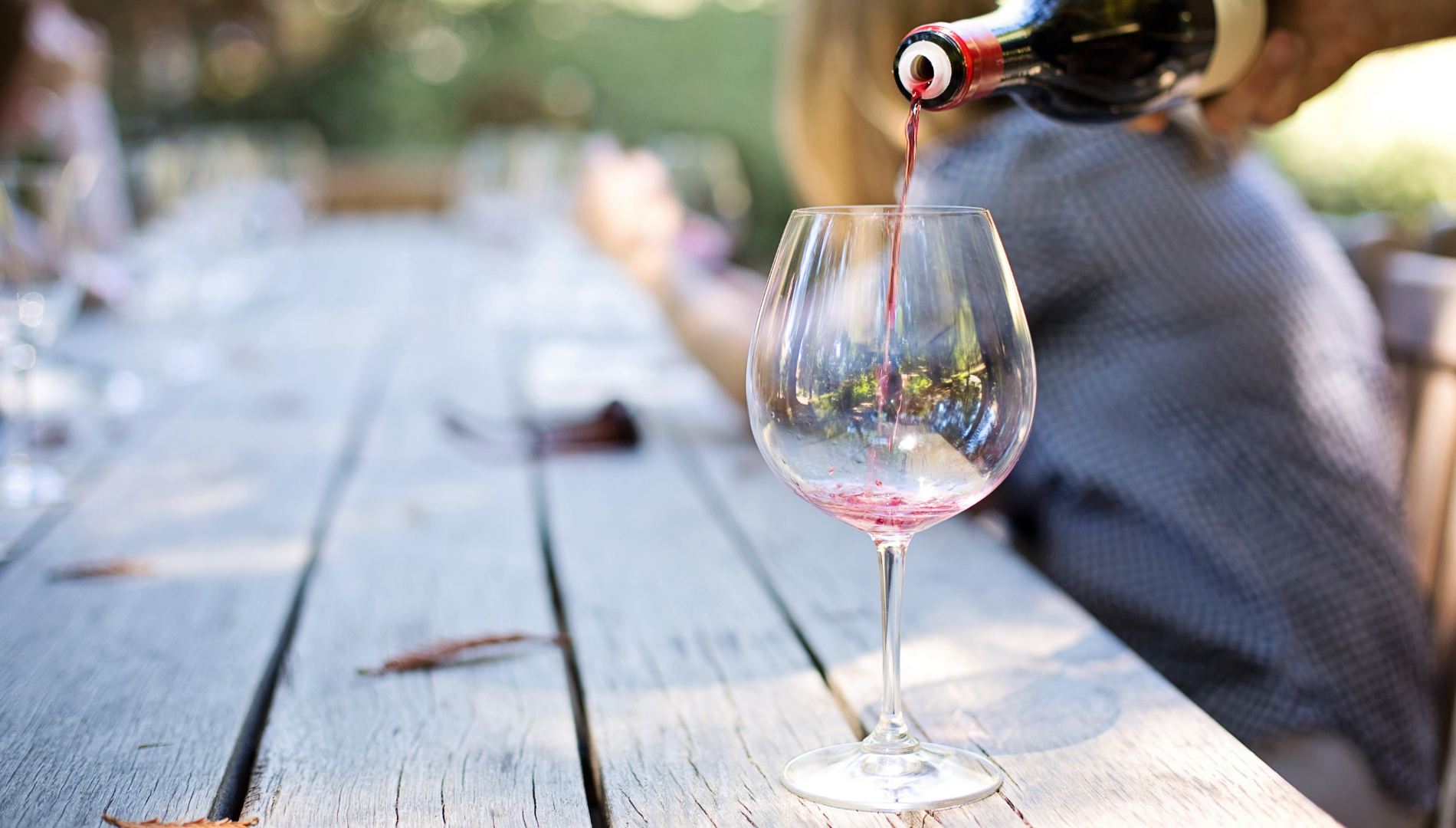Nutrition During Breastfeeding

Because the list of female superpowers is not long enough, we will add making the liquid gold that is breast milk to the mix. If you didn’t know, a woman’s breast milk changes over time to include specific nutrients needed by the baby at the time.
Where do these nutrients come from? You guessed it, the mom’s body.
But here is the kicker. It takes almost the same energy to produce breast milk as it does growing a fetus in your body. Combine that with a baby who is drinking away all your nutrients, and you can see why it's critical to fill up with nutrient-dense, nourishing foods.
Breastfeeding is the best way to provide nutrition for a baby, but you may ask what about the mum? What should I be eating during those important early months? Are there specific foods that I should avoid? And can I finally have a glass of wine and some sushi?
Read on as we answer these and more questions below.
What Foods Should I Eat while Breastfeeding?
There is no special diet for breastfeeding, but you should eat a balanced diet consisting of nutrient rich foods. This means plenty of food from the five main food groups as described by the Australian Dietary Guidelines.
Here is a low down of what you should be aiming for daily while breastfeeding:
|
Food Group |
Number of Serves |
Example of 1 Serve |
Key Nutrients |
|
7.5 |
½ cup cooked green or orange vegetables (e.g., broccoli, carrot, pumpkin, or spinach) OR ½ cup cooked, dried or canned beans, chickpeas, or lentils) OR 1 cup raw leafy green vegetables OR ½ medium potato, or other starchy vegetable |
· Fibre · Folate |
|
|
2 |
1-piece medium sized fruit (e.g., apple, banana, orange, pear) OR 2 pieces smaller fruit (apricot, kiwi fruit, plums) OR 1 cup diced, cooked, or canned fruit OR ½ cup 100% juice OR 30g dried fruit (1½ tablespoons sultanas, four dried apricot halves) |
· Fibre
|
|
|
9 |
One slice of bread OR ½ cup cooked rice, pasta, noodles, quinoa, or porridge OR ⅔ cup breakfast cereal flakes OR ¼ cup muesli |
· Fibre · Folate · Thiamin · Niacin · Zinc |
|
|
2.5 |
One cup milk OR 2 slices hard cheese OR 200g yoghurt |
· Calcium · Protein · Iodine · Zinc |
|
|
2.5 |
65 g cooked lean red meats OR 80 g cooked poultry OR 100g fish fillet or one tin fish OR 2 large eggs OR 170g tofu OR 1 cup legumes OR 1/3 cup unsalted nuts/nut paste |
· Protein · Iron · Zinc · Iodine |
This table is based on the Australian Dietary Guidelines.
Please remember that this is only a guide, use your common sense and appetite to determine what is the right amount for you.
Fluid
When you are breastfeeding, you need to drink more to replace the fluid used in breast milk. Try to have a glass of water every time you pick up the baby for breastfeeding as well as in between feeds.
What to Avoid While Breastfeeding
Thankfully, there is not much you need to avoid when breastfeeding. All those dietary restrictions you were put on while pregnant do not apply anymore. And like most mums, the selective appetite and hatred for some things have also disappeared.
In other words, feel free to go back to eating sushi and oysters, cold cuts, and soft cheeses.
That said, there are two products that you should take in moderation or avoid them altogether.
-
Caffeine
Every new mum will tell you the importance of caffeine consumption to stay awake during those 48-hour days. However, the caffeine in your coffee makes its way to your breast milk like everything else you eat. If you drink too much coffee, do not be surprised if you have an anxious and jittery baby who cannot fall asleep.
As a rule, keep your caffeine to a minimum (2-4 cups a day is enough).
Although be careful caffeine is also found in other drinks such as:
- Tea (including black and herbal teas such as green tea)
- Soft drinks such as cola
- Cocoa drinks
- Drinks with added guarana such as energy drinks or chocolate milk/drinks
There are caffeine-free teas available in the supermarkets such as rooibos, chamomile, and peppermint teas.
-
Alcohol
The safest option is to avoid drinking alcohol altogether while breastfeeding. However, if done correctly you can now have a glass of wine with your girlfriends. As you do that, however, know that alcohol can pass quickly from the bloodstream to breast milk. This means that the alcohol concentration of your breast milk is the same as your blood alcohol concentration within 30-60 minutes after your first drink.

The key to enjoying a glass of wine, a beer or whatever you choose to drink is to plan ahead. It takes about 2 hours per one standard drink for the average woman to return to a blood alcohol concentration of zero.
There are many factors that can affect your blood alcohol concentration including:
- How many drinks you have had (this one is obvious)
- How much you have eaten
- How much fluid (apart from alcohol) that you have had
- How strong your drinks are
- How much you weigh
After your last drink, the alcohol in your blood (and breast milk) will start to decrease. But note only time will decrease your alcohol concentration. Expressing your breast milk and throwing it away (also known as 'pumping and dumping') will not reduce the alcohol in your breast milk if you still have alcohol in your bloodstream.
When can you start breastfeeding your baby again after you have had a couple of drinks? This is difficult to answer and depends on the above factors. Fortunately the Feed Safe app can help give you an estimate whether enough time has passed for your breast milk to be alcohol free again. This app is free to download and definitely recommended.
Planning ahead of time when you plan to drink gives you the opportunity to pump and store some milk to feed the baby whilst you are drinking or waiting for you alcohol concentration to return to zero. This ensures that your baby does not miss a breast milk feed.
Supplements for Breastfeeding Mums
You can get almost all the nutrients you need for lactation through a healthy diet. However, for all breastfeeding mothers the National Health and Medical Research Council recommends an iodine supplement.
Iodine is important for your baby’s brain development. If you are breastfeeding, you should take a supplement with 150mcg (micrograms) of iodine. Avoid seaweed-based supplements as these can have varying amounts of iodine and may have excess mercury.
You will also need to consume foods that are high in iodine to meet requirements.
High iodine foods can include:
- Fresh, cooked seafood
- Bread with added iodine
- Eggs
- Dairy products
There are instances where a mum may need additional supplements in their diet. For example, breastfeeding mothers following a vegan or vegetarian diet do not get as much vitamin B12, iron, calcium, and other nutrients naturally because of the foods they do not eat. In this case, they may have to rely on supplements for their daily intake. Speak to your doctor or accredited practicing dietitian if you are following a plant-based diet.
Weight-Loss During Breastfeeding
Breastfeeding can help you return to your pre-pregnancy weight, as your body uses fat as fuel to make breast milk. The greatest amount of weight loss occurs in the first 3 months after birth. It then continues at a slow and steady rate until around 6 months after birth.
When you are trying to lose pregnancy weight, it is important you meet your nutritional needs and not lose weight too fast. Do not use crash or fad diets to try to lose weight.
Consider the following
- Do not skip meals
- Plan healthy meals and snacks ahead of time!
- Limit highly processed foods or foods high in fat or sugar such as lollies, chocolates, pastries, fried foods, and cakes
- Trim fat from meats
- Do gentle exercises such as taking your baby for a walk
If you find that you are losing weight too quickly, try to increase your intake of foods from the five food groups. Also try having smaller but more frequent meals and snacks.
How breastfeeding affects your body weight is an individual thing and there are a lot of contributing factors that make it difficult to give a blanket answer. Speak to your doctor or accredited practicing dietitian if you want specific advice on weight-loss during breastfeeding.
Final Thoughts
While breastfeeding, the mother's diet provides important nutrients to both you and your baby. It is important for nursing mothers to eat a healthy and balanced diet, especially if you are trying to lose weight while breastfeeding. By eating a variety of foods across all food groups as described by the dietary guidelines, drinking plenty of water, and following your hunger cues you should be meeting your requirements.
Remember that every woman and baby are different, so what works for one may not work for another. Speak with your healthcare professional if you have any questions or concerns about your diet while breastfeeding.
Most importantly, enjoy this special time with your new little one!

Want to Know More?
Below are additional resources and guidelines that will help you on your breastfeeding journey.
- Breastfeeding Information | Australian Breastfeeding Association
- Healthy Eating When You are Pregnant or Breastfeeding | Eat for Health
- Healthy Eating for Breastfeeding Mothers Factsheet | Queensland Health
- Breastfeeding | Queensland Health
- Breastfeeding and Drugs | Queensland Health
Disclaimer
The healthcare information provided in this document is general in nature and not designed to replace personalised professional medical advice. Please consult your healthcare provider for advice if you are concerned about your health or the health of someone you know.




